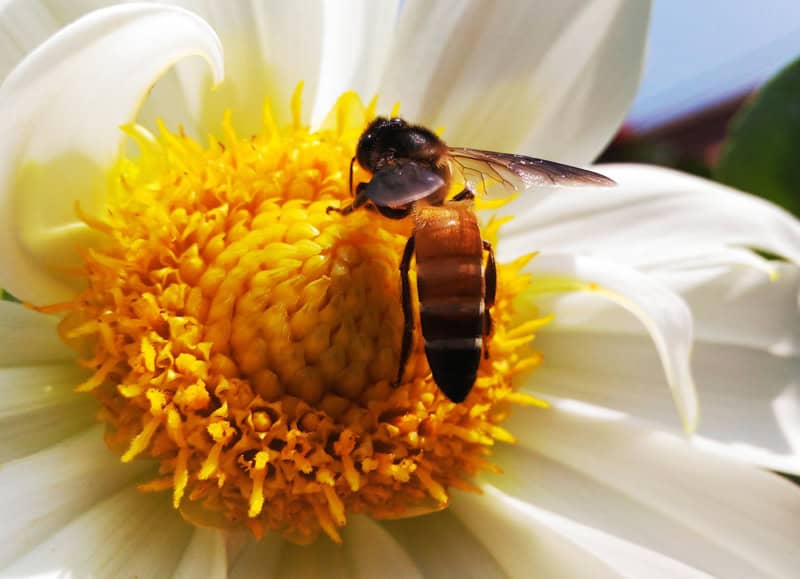Washington: Australian and French scientists have discovered that honeybees can understand the concept of zero, making them into the ranks of an elite club of clever animals including dolphins, parrots, primates and preschool kids that can grasp the abstract mathematical notion of nothing.
The findings reported on Thursday in the journal Science demonstrated even tiny brains can comprehend complex, abstract concepts and opened up possibilities for new, simpler approaches to developing Artificial Intelligence, Xinhua reported.
The number zero is the backbone of modern maths and technological advancements, according to Adrian Dyer, associate professor from the Royal Melbourne Institute of Technology (RMIT).
“Zero is a difficult concept to understand and a mathematical skill that doesn’t come easily. It takes children a few years to learn,” said Dyer, the paper’s corresponding author.
Previous research showed honeybees can learn intricate skills from other bees and even understand abstract concepts like sameness and difference.
But bee brains have fewer than 1 million neurons, compared with the 86 billion neurons of a human brain, and little was known about how insect brains would cope with being tested on such a numeric skill.
RMIT researcher Scarlett Howard, the paper’s first author, and colleagues trained the honeybees to choose an image with the lowest number of elements in order to receive a reward of sugar solution.
They were lured to a wall containing white squares each with a different number of black shapes. For instance, the bees were encouraged to choose three elements when presented with three or four. If they chose the square with “smaller” number, they would be rewarded with food.
When Howard periodically tested the bees with an image that contained no elements versus an image that had one or more, the bees understood that the set of zero was the lower number, despite they never had been exposed to an “empty set”.
“It is relatively easy for neurons to respond to stimuli such as light or the presence of an object but how do we, or even an insect, understand what nothing is?” said Dyer.
Aurore Avargues-Weber from the University of Toulouse in France, the paper’s co-author, said: “Large brains are thus not necessary to play with numbers. This capacity is therefore probably shared by many other animals.”
“If bees can perceive zero with a brain of less than a million neurons, it suggests there are simple efficient ways to teach AI new tricks,” said Dyer.
IANS

